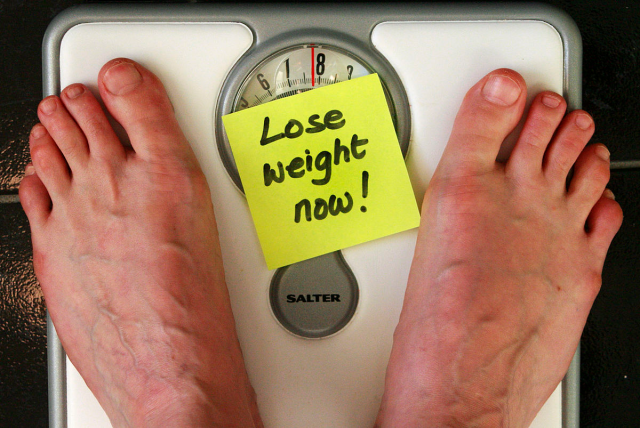The problem with exercising and losing weight

If you have ever tried to lose weight by exercising you probably know is not that easy. However, you might be happy to know that the problem is not only a matter of motivation. It’s been consistently reported that the effect of exercise on weight is surprisingly smaller than what theory would predict.
The reasons are not well understood. One possibility is that exercise activates mechanisms that counteract the calorie loss. For example, exercise increases hunger. It could well be that some of the weight that is lost during exercise is later regained by overeating.
Now, a new research from the National Institutes of Health published in Current Biology 1 has shed some new light on this phenomenon.
Fit mice
Mice and humans are very different, and this becomes very clear when one studies physical activity. One of the most striking difference is that, unlike most of us, lab mice don’t need strong motivations to exercise. All the researchers need to do is put a running wheel inside their cage and, most of the times, the mice will spontaneously use it.
Another asset of using animals in these kind of experiments is that they are relatively easier to monitor than humans. Using metabolic cages, it is possible to know how much oxygen they consume and how much carbon dioxide they produce. This allows to roughly monitor both the energy that enters the animals and how much of it is released.
In a first set of experiments, the researchers confirmed that exercise also has a limited effect on body weight in mice. When the animals were allowed to exercise on a running wheel during three days, they spent 4% more energy and ate 10% less than when they were sedentary. Despite this, they did not lose any weight.
The counter intuitive observation that mice actually ate less when they exercised is explained by the researchers citing previous reports that show that short-term exercise can actually inhibit hunger.
But what happens when animals exercise for longer periods? To test this, the experiment was extended from three days to three weeks. The researchers observed that, as the days passed, the animals became fitter and were able to exercise more, increasing the number of wheel turns.
But despite exercising more, the animals did not spend more energy throughout the experiment. The amount of energy used by the animals peaked on the first week and then became stable. During the second and third weeks, the animals burnt the same amount of energy, despite running longer distances every day.
The researchers observed that the mice did eat more and lose some weight during the three weeks, but not enough to explain the results.
Neither created nor destroyed
These results suggested that physical activity and calorie burning do not increase in parallel. Instead, the largest effects of exercise seems to occur during the first week. Afterwards, increasing physical activity does not increase energy expenditure.
But energy is neither created nor destroyed. How could the animals be spending the same amount of calories despite doing more exercise?
One possibility was that perhaps the animals were saving energy during the day to use it in the running wheel. The idea was tested by continuously tracking and quantifying their movements using cameras installed on the top of the cages.
The hypothesis proved right. When the mice had access to the running wheel, they moved less around the cage the rest of the day. This way they compensated for the excess of energy that they spent running.
However, this observation does not discard the possibility that other compensatory effects are also taking place. For example, the authors suggest that muscle efficiency could be increasing with training, so that less energy is required.
Another interesting possibility that the authors could have investigated is if exercise affects temperature. A decrease in body temperature throughout the day in response to physical activity could also explain the observations, as less energy would be lost in the form of heat.
Time to quit the gym?
Although this work shows an interesting link between physical activity and behaviour, it seems clear that it only tells a small part of the story. More research is needed to know how these results translate into humans and to better understand how our bodies adapt to physical exercise.
But before quitting the gym, remember that physical exercise has many other benefits, such as improving glucose regulation and cardiac function. And it is positively associated with longevity, reducing the risk of many diseases and premature death.
So if you want to live longer, don’t give up exercise. Even if it doesn’t help you to get rid of those extra pounds.
References
- Timothy J. O’Neal, Danielle M. Friend, Juen Guo, Kevin D. Hall, Alexxai V. Kravitz.Increases in Physical Activity Result in Diminishing Increments in Daily Energy Expenditure in Mice. Current Biology (2017) 27, 1–8 doi: 10.1016/j.cub.2016.12.009 ↩